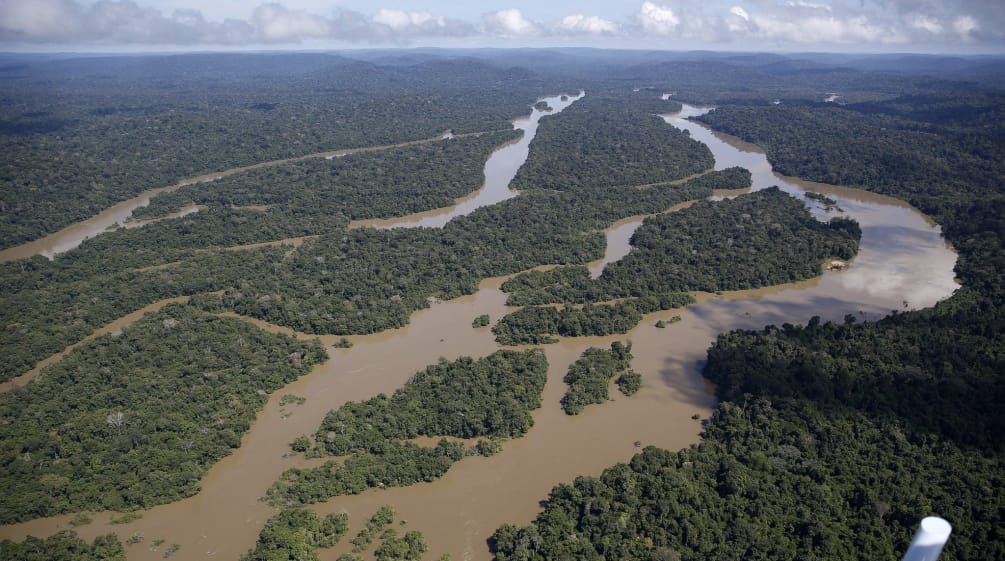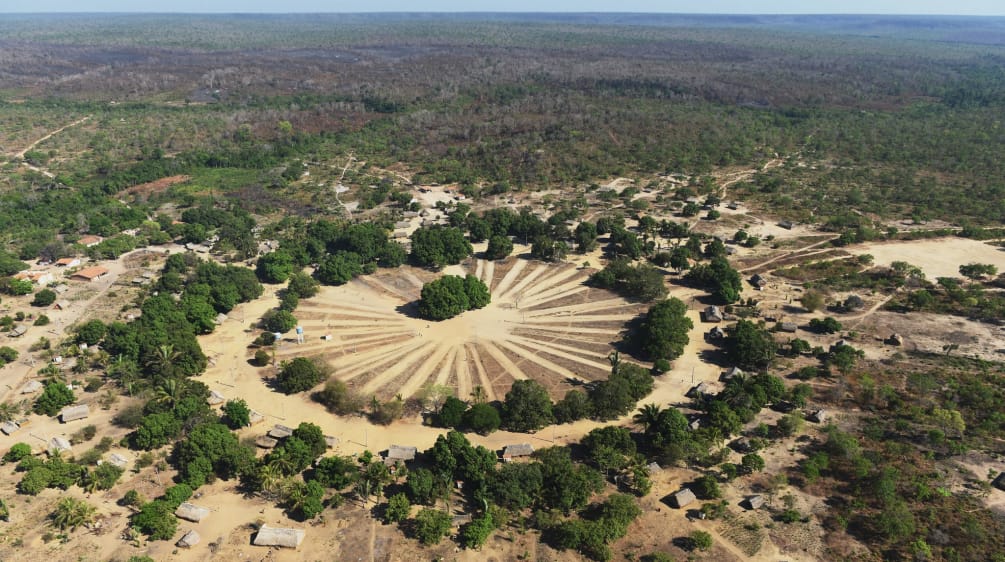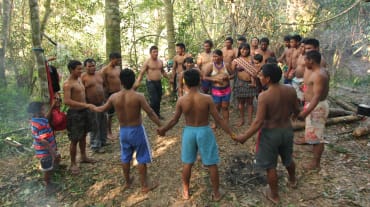Bolsonaro voted out – but is the Amazon rainforest safe?
Nov 4, 2022
Lula da Silva will once again be president of Brazil, and the previous incumbent Jair Bolsonaro has been voted out. We asked our partner organizations there what this means for them, their work, the indigenous peoples and the rainforests.
Last Sunday, the left-leaning Lula da Silva won the Brazilian presidential elections, albeit by an extremely narrow margin over the hard-right incumbent, Jair Bolsonaro.
The latter plunged the country into a serious crisis, sowing intolerance, hatred and violence. Deforestation rates skyrocketed under Bolsonaro. As president, he called for the occupation and exploitation of rainforests, slashed protected areas and opened them for mining, and halted the recognition of indigenous territories.
Lula da Silva’s victory was met with an overwhelmingly positive response across the globe, with international well-wishers expressing hope for the Amazon rainforest and the world’s climate.
But are the high expectations for Lula realistic? Lula has already governed the country for two terms from 2003 to 2010 and is thus no stranger to the top job. Can he unite the country and stop the spiral of destruction, considering that he does not have a majority in parliament?
First reactions
“We're relieved, even though Bolsonaro left Brazil divided. Now is the time to calm down, the fight goes on”, observes the Pastoral Land Commission CPT from Maranhão State. The organization sees the election result as a “victory of democracy over fascism”.
Our partner organization Xingu Vivo from the state of Pará is also “relieved”, but reminds us that “Lula was the builder of the Belo Monte Dam” – a gigantic hydroelectric project in the rainforest – “which led to the founding of the Xingu Vivo movement”.
The impact of Bolsonaro’s presidency
According to Forum Carajas, one of the worst effects of Jair Bolsonaro’s government was the “the rise of agribusiness”.
To this end, Xingu Vivo points out that “state institutions such as IBAMA, the Environmental Agency, FUNAI, the National Indigenous Agency, and INCRA, the Land Agency, whose missions were to protect the environment and traditional communities and indigenous peoples, were used as tools of destruction under Bolsonaro. We hope this will change quickly under Lula”.
The CPT cites ethical aspects such as the “mockery of the hundreds of thousands of Covid deaths, the inhumanity and violation of human dignity by Jair Bolsonaro, his machismo and misogynist and ultra-religious agenda, the systemic violence and weaponization of society, and the assassination of indigenous leaders and human rights defenders” as the worst effects of the Bolsonaro government.
What’s next under Lula da Silva?
The CPT is looking to the new government for “the reinvention of Brazil” as well as “an end to the violence against human rights defenders, the recognition of indigenous rights and the legalization of territories traditionally inhabited by a large number of smallholders”.
For the CPT, the challenges include “rebuilding of the institutions of the Brazilian state, the fight against violence and the protection of democracy and the Amazon”.
“Lula will continue to support development projects such as the Belo Monte dam, and he has already announced a policy of infrastructure expansion – the construction of major roads, railroads, ports and the like to extract raw materials and expand production”, explains Xingu Vivo. “He is also betting on carbon markets and other green economy mechanisms that we think are wrong”.
The Forum Carajas is hoping for “the return of rationality” and sees one of the challenges as “not letting people believe that the fight is over and that we have arrived in paradise”.














